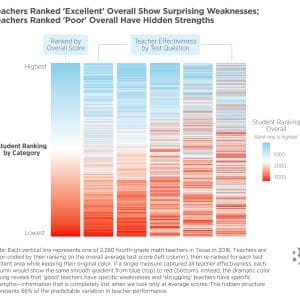Research Briefs·Apr 23, 2024
Early Predictors of Racial Disparities in Criminal Justice Involvement
Andrew Jordan, Ezra Karger, and Derek Neal
Detailed measures of early academic achievement and socioeconomic status are powerful predictors of future criminal justice involvement; however, while reforms that improve school quality and neighborhood environments are likely to reduce future racial disparities in criminal justice involvement, such improvements...
Topics:
Early Childhood Education, Economic Mobility & Poverty, Higher Education & Workforce Training












